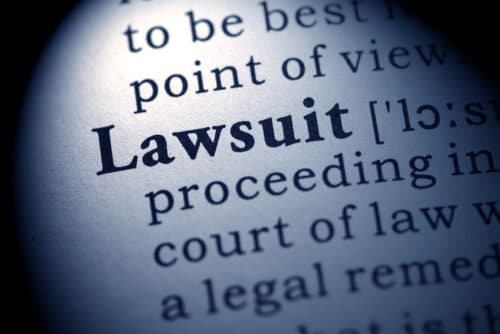Not everyone has the right to sue after an accident; only certain parties have legal “standing” to file a lawsuit against someone who caused injury through their actions.

If you or someone you love has been hurt in an accident, you are likely feeling stressed and overwhelmed. You may be dealing with ongoing medical treatment, pain, trauma from the event itself, and mounting bills during your recovery. Your loved ones may be feeling anxiety as well, particularly your spouse or children if you cannot do what you normally do for your family.
If you weren’t hurt in the accident, you may be wondering what your rights are. Can you sue for another person’s injuries?
The answer to this question involves the concept of legal standing, which is a person’s right to bring a lawsuit. While this post provides a general guide on legal standing, a personal injury attorney will be able to evaluate your specific case to determine if you have standing to sue.
Standing
Standing means that you have the right to sue someone because he or she injured you. California courts, like most courts across the United States, require a person to have standing to make sure that the person filing the lawsuit is someone who actually suffered harm as a result of the negligent or wrongful actions of another person. In short, the courts want to make sure that the plaintiff in a personal injury lawsuit is the real party of interest — and that person who was actually hurt can file a lawsuit against the responsible person.
Many people may be impacted by an accident, but that does not mean that those people have the right or the ability to file a lawsuit against the wrongdoer. In general, the person who is actually injured is the only one who has the right to file a lawsuit. For example, if Joe Smith was hit by a speeding car while crossing the street, suffering serious injuries, he would be permitted to sue the driver. Other parties — such as bystanders who witnessed the accident and suffered mental trauma from seeing Joe hit — may not have standing to sue. A personal injury lawyer will be able to assess the facts of the case and determine if there are grounds for a lawsuit. If a lawsuit is filed, the person who is sued may move to dismiss the claims of anyone who wasn’t directly injured by the event on the grounds that they do not have standing to sue.
There are some situations where a person who was not directly harmed by an accident can sue on behalf of the injured person. This may include a parent or legal guardian who may file a lawsuit on behalf of a minor child who was hurt. If the accident was fatal, then people who are closely related to the deceased party can file a lawsuit for wrongful death. These people may include the personal representative of the deceased person, a surviving spouse or children, a domestic partner, or a minor who was supported by the deceased person. In the example above, if Joe Smith died as a result of being hit by the car, his spouse or partner, children or other surviving family members can file a lawsuit for his wrongful death.
If a loved one has been hurt in an accident, seek out the advice and counsel of an experienced personal injury lawyer. Your attorney can look at the specific facts of your case and determine whether you have a right to sue the wrongdoer. Contact the Law Offices of Larry H. Parker today at 800-333-0000 or info@larryhparker.com to schedule a free initial consultation. We can evaluate your case to let you know if you have standing to sue — and we never charge a fee unless we recover money for you!



